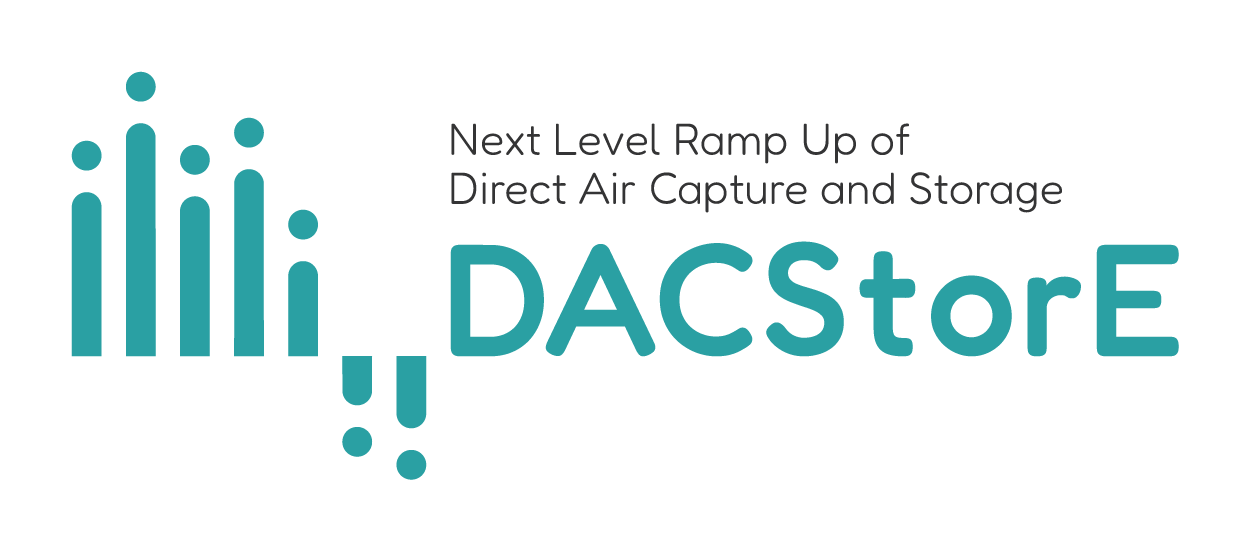Sub-project I: Technology Assessment
The sub-project, ‘technology assessment’ conducts a holistic assessment of DACS technology. In its course the techno-economic potential of DACS is demonstrated globally. Furthermore, globally-available and -suitable underground storage potential with consideration of constraints is identified. In addition, the various impacts connected to the implementation of DACS systems are investigated. This includes the impact of emissions from DAC facilities, including adsorbent degradation products and on the atmosphere. A technology-path-specific assessment of entire process chains will determine the sustainability (ecologic, economic and social) of different DACS systems. Finally, the interdisciplinary knowledge gathered about DACS technology from the previous assessments is combined to allow a detailed design of a sustainable DACS system for specific sites. This way the sub-project allows to recommend suitable sites and DACS system setups for pilot projects and a subsequent market ramp-up of this technology.
sub-project lead
Dr. Mak Dukan
Institute of Climate and Energy Systems, Jülicher Systemanalyse (ICE-2), Forschungszentrum Jülich
E-Mail: dacstore-info@fz-juelich.de
Partners working on this sub-project:

Forschungszentrum Jülich
- Institute of Climate and Energy Systems, Jülicher Systemanalyse (ICE-2)
- Institute of Climate and Energy Systems, Troposphäre (ICE-3)

GFZ Helmholtz-Zentrum für Geoforschung
- German Research Centre for Geosciences
the scientists
Forschungszentrum Jülich
Institute of Climate and Energy Systems, Jülicher Systemanalyse (ICE-2)
Institute of Climate and Energy Systems, Jülicher Systemanalyse (ICE-2)
Institute of Climate and Energy Systems
Institute of Climate and Energy Systems
Sub-Project Lead
Investigator
Principal Investigator
Principal Investigator
Institute of Climate and Energy Systems, Troposphere (ICE-3)
Institute of Climate and Energy Systems, Troposphere (ICE-3)
Institute of Climate and Energy Systems, Jülicher Systemanalyse (ICE-2)
Research Associate
Principal Investigator
Principal Investigator
Post-Doc
Institute of Climate and Energy Systems, Jülicher Systemanalyse (ICE-2)
Institute of Climate and Energy Systems, Troposphere (ICE-3)
Institute of Climate and Energy Systems, Jülicher Systemanalyse (ICE-2)
Institute of Climate and Energy Systems, Jülicher Systemanalyse (ICE-2)
PhD Student
PhD Student
PhD Student
PhD Student
Helmholtz-Zentrum Potsdam
Deutsches GeoForschungsZentrum
Deutsches GeoForschungsZentrum
Deutsches GeoForschungsZentrum
Deutsches GeoForschungsZentrum
Principal Investigator
Principal Investigator
Post-Doc
PhD Student
If you would like to be informed about DACStorE events, please send an email to dacstore-info(at)fz-juelich.de with the subject 'Mailing List' or feel free to contact us via our LinkedIn profile.
Events
Publications
Weather conditions severely impact optimal direct air capture siting
publication by H. Wenzel, F. Harzendorf, K. Okosun, T. Schöb, J. M. Weinand, D. Stolten, Advances in Applied Energy (2025)
- In this study, they take a deep dive into how weather variability fundamentally influences the performance and cost of Direct Air Capture (DAC) across different regions. Temporal resolution matters: they find variations in energy demand of more than 100% over the course of a year, emphasizing that accurately capturing fast-changing weather conditions is essential for reliable modeling of DAC energy use and productivity. This article is in the framework of DACStorE Subproject I.
- Link to publication
Developing a preliminary site selection method for direct air capture and CO₂ storage technology with a case study in North Germany
publication by Y. Xu, M. Singh, C. Schmidt-Hattenberger, M. Farkas, W. Weinzierl, T. Fernandez-Steeger, Int. Journal of Greenhouse Gas Control, (2025)
- This study proposes a preliminary site screening and selection procedure tailored for Direct Air Capture (DAC) and CO₂ storage deployment. By adapting existing site selection frameworks, the approach incorporates DAC-specific criteria to better reflect the technological and infrastructural needs of DAC systems. The publication was developed within the framework of DACStorE Subproject I. This subproject focuses on identifying suitable sites for the capture of CO₂ from ambient air and its geological storage. The article presents a methodological approach for selecting potential DAC+S sites in Northern Germany.
- Link to publication
- Link to the data publication
Criteria for effective site selection of direct air capture and storage projects
publication by F. Harzendorf, T. Markus, A. Ross, R. Valencia Cotera, C. Baust, S. Vögele, D. Taraborrelli, P. Zapp, V. A. Karydis, P. Bowyer, and D. Stolten, Environmental Research Letters (2024)
- This paper develops a comprehensive set of criteria for evaluating suitable sites for direct air carbon capture and storage (DACCS) projects, integrating not only technical aspects such as CO₂ storage and energy infrastructure but also legal, social, environmental, and economic dimensions to enable informed and balanced site selection decisions. This paper is part of DACStorE Sub-Project I, Sub-Project II, and Sub-Project III and shows how interdisciplinary site assessments and proactive regulation can establish suitable conditions for planning and scaling up direct air capture technologies.
- Link to publication
Scoping carbon dioxide removal options for Germany–What is their potential contribution to Net-Zero CO2?
publication by M. Borchers, D. Thrän, Y. Chi, N. Dahmen, R. Dittmeyer, T. Dolch, C. Dold, J. Förster, M. Herbst, D. Heß, A. Kalhori, K. Koop-Jakobsen, Z. Li, N. Mengis, T. B. H. Reusch, I. Rhoden, T. Sachs, C. Schmidt-Hattenberger, A. Stevenson, T. Thoni, J. Wu, C. Yeates, Frontiers in Climate (2022)
- This article is within the framework of DACStorE Subproject I.
- Link to publication









